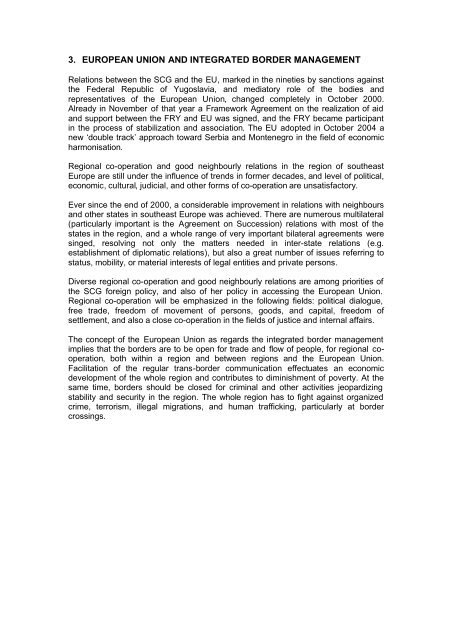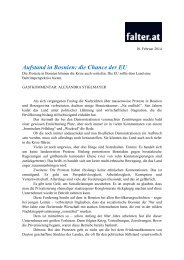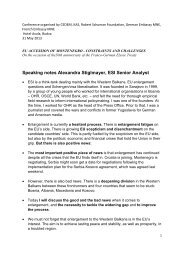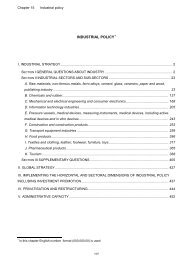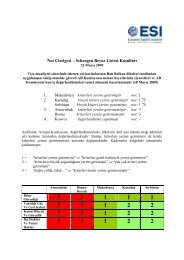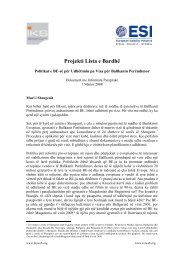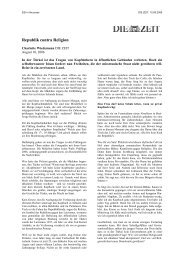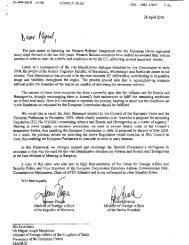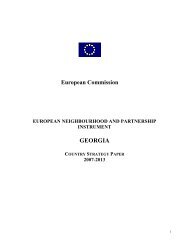Strategy for integrated border management
Strategy for integrated border management
Strategy for integrated border management
Create successful ePaper yourself
Turn your PDF publications into a flip-book with our unique Google optimized e-Paper software.
3. EUROPEAN UNION AND INTEGRATED BORDER MANAGEMENT<br />
Relations between the SCG and the EU, marked in the nineties by sanctions against<br />
the Federal Republic of Yugoslavia, and mediatory role of the bodies and<br />
representatives of the European Union, changed completely in October 2000.<br />
Already in November of that year a Framework Agreement on the realization of aid<br />
and support between the FRY and EU was signed, and the FRY became participant<br />
in the process of stabilization and association. The EU adopted in October 2004 a<br />
new ‘double track’ approach toward Serbia and Montenegro in the field of economic<br />
harmonisation.<br />
Regional co-operation and good neighbourly relations in the region of southeast<br />
Europe are still under the influence of trends in <strong>for</strong>mer decades, and level of political,<br />
economic, cultural, judicial, and other <strong>for</strong>ms of co-operation are unsatisfactory.<br />
Ever since the end of 2000, a considerable improvement in relations with neighbours<br />
and other states in southeast Europe was achieved. There are numerous multilateral<br />
(particularly important is the Agreement on Succession) relations with most of the<br />
states in the region, and a whole range of very important bilateral agreements were<br />
singed, resolving not only the matters needed in inter-state relations (e.g.<br />
establishment of diplomatic relations), but also a great number of issues referring to<br />
status, mobility, or material interests of legal entities and private persons.<br />
Diverse regional co-operation and good neighbourly relations are among priorities of<br />
the SCG <strong>for</strong>eign policy, and also of her policy in accessing the European Union.<br />
Regional co-operation will be emphasized in the following fields: political dialogue,<br />
free trade, freedom of movement of persons, goods, and capital, freedom of<br />
settlement, and also a close co-operation in the fields of justice and internal affairs.<br />
The concept of the European Union as regards the <strong>integrated</strong> <strong>border</strong> <strong>management</strong><br />
implies that the <strong>border</strong>s are to be open <strong>for</strong> trade and flow of people, <strong>for</strong> regional cooperation,<br />
both within a region and between regions and the European Union.<br />
Facilitation of the regular trans-<strong>border</strong> communication effectuates an economic<br />
development of the whole region and contributes to diminishment of poverty. At the<br />
same time, <strong>border</strong>s should be closed <strong>for</strong> criminal and other activities jeopardizing<br />
stability and security in the region. The whole region has to fight against organized<br />
crime, terrorism, illegal migrations, and human trafficking, particularly at <strong>border</strong><br />
crossings.


